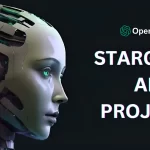
Revolutionizing Scientific research with ChatGPT: 7 Applications
February 8, 2023OpenAI introduced a long-form question-answering AI called ChatGPT that answers complex questions conversationally.
It’s a revolutionary technology because it’s trained to learn what humans mean when they ask a question.
Many users are amazed by how well it can answer questions like a person. This makes them think that it might be able to change how people use computers and how information is found in the future.
What is ChatGPT?
ChatGPT (Chat Generative Pre-trained Transformer) is a chatbot launched by OpenAI in November 2022. It is built on top of OpenAI’s GPT-3 family of large language models and fine-tuned (an approach to transfer learning) with both supervised and reinforcement learning techniques.
ChatGPT was first released as a prototype on November 30, 2022. It quickly gained attention for its detailed answers and clear explanations in many areas of knowledge. Its uneven factual accuracy was identified as a significant drawback.
Who Built ChatGPT?
ChatGPT was created by San Francisco-based artificial intelligence company OpenAI. OpenAI Inc. is the non-profit parent company of the for-profit OpenAI LP.
OpenAI is famous for its well-known DALL·E, a deep-learning model that generates images from text instructions called prompts.
The CEO is Sam Altman, who previously was president of Y Combinator.
Microsoft is a partner and investor in the amount of $1 billion dollars. They jointly developed the Azure AI Platform.
How it works?
ChatGPT was made better by adding supervised learning and reinforcement learning to GPT-3.5. Both approaches used human trainers to improve the model’s performance. In supervised learning, the model was given conversations in which the trainers played both the user and the AI assistant. In the reinforcement step, humans first ranked responses that the model had made in a previous conversation. These rankings were used to generate “reward models,” which were then fine-tuned by the model using several iterations of Proximal Policy Optimization (PPO). Proximal Policy Optimization algorithms are more cost-effective than trust region policy optimization algorithms because they eliminate many computationally expensive operations while providing faster performance.
How ChatGPT can be used in scientific research?
1. Data analysis:
We can use ChatGPT based on prompt we give to assist with large scale data analysis by automatically processing and summing up large sets of data.
2. Literature review:
We can also use ChatGPT with the proper prompt for searching the literature and summarizing relevant articles and papers.
3. Predictive modelling:
We can use ChatGPT to develope predictive models by analyzing patterns and relationships in data
4.Text generation:
We can give prompts to generate scientific text, such as abstracts, introductions, and improvements in discussion, based on existing scientific literature.
5.Question answering
We can use ChatGPT to answer questions related to scientific research, create hypotheses by quickly retrieving information from a large database of knowledge.
6. Experiment design:
Based on existing research, we can use ChatGPT to suggest variables and parameters to test for experimental design.
7.Scientific visualization:
We can use ChatGPT to assist in generating visual representations of scientific data for graphs, charts, and it can help to understand patterns and relationships.
What are the limitations of ChatGPT?
1. Limitations on Toxic Response
ChatGPT is specifically programmed not to provide toxic or harmful responses. So it will avoid answering those kinds of questions.
2. Quality of Answers Depends on Quality of Directions
A big problem with ChatGPT is that the quality of the output depends on how good the inputs are. In other words, expert directions (prompts) generate better answers.
3. Answers Are Not Always Correct
Another limitation is that because it is trained to provide answers that feel right to humans, the answers can trick humans into thinking the output is correct.
Many users discovered that ChatGPT can provide incorrect answers, including some that are wildly incorrect.


















